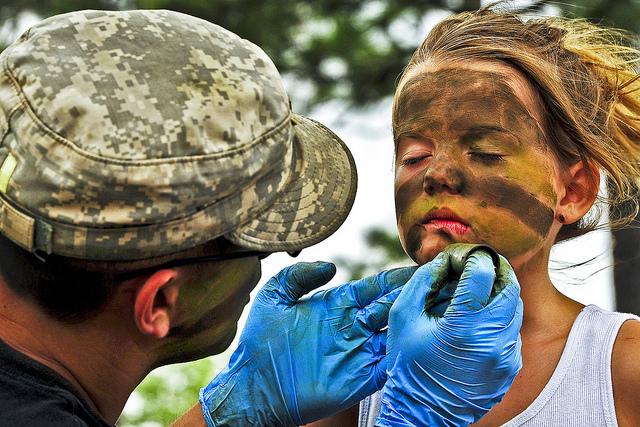
Meet the first women to pass the US Army’s gruelling Ranger School: Captain Kristen Griest and 1st Lieutenant Shaye Haver. Later today, they’ll receive the covetted black and yellow Ranger Tab with 94 male colleagues who passed the first gender-integrated iteration of the course. Hopefully their achievement is added to the timeline in this newly released Congressional Research Service report on women in combat.
But, as always, haters gonna hate. Fed up with rumours that the course lowered its standards to pass the women, XO for the Airborne and Ranger Training Brigade Major Jimmy Hathaway took to social media to ‘inject some fact into the conversation’ by clarifying the recycle opportunities and presence of observers. One member of Griest and Haver’s class interviewed (worth reading in full) said, ‘I probably wouldn’t be sitting here right now if not for Shaye’, who had offered to take some of his extra load during the Mountain Phase. Next stop, Navy SEALs.
Here’s the Dutch teen who maps the jihadists. Straight outta high school, Thomas van Linge has made some of the best maps of Islamic State and has also been watching Boko Haram and separatists in Ukraine. He developed his method during a school assignment on Syria, making contact with activists, gaining their trust and mapping the information sent to him. According to the Spiegel article, van Linge continues to Skype with fighters and receives massive amounts of data via social media accounts, including to his now-popular Twitter @arabthomness. His next project is to help the people who are suffering in places he has deftly mapped.
Southeast Asia watchers, Myanmar’s elections are coming up on 8 November. Rachel Wagley at NBR has provided a pithy summary covering the constitutional barriers, main parties, the credibility of the Union Election Commission, the disenfranchisement of the ethnic minorities, police power and more. India’s former Ambassador to Myanmar, Rajiv Bhatia, covers what might emerge from the polls for foreign stakeholders like China, India and ASEAN.
Speaking of India, Pushan Das of the Observer Research Foundation argues its time for India to rethink its nuclear policy. With the public viewing the political class as ‘weak-kneed’, Das says the government must release more data on its nuclear policy and to reduce misunderstanding in China and Pakistan as to India’s intent. The long version of Das’ discussion is available here.
For the researchers and defence nerds, the Parliamentary Library has pulled together the history of Australia’s defence white papers into one handy report which sets out a synopsis of each, its historical context, strategic objectives and major capability choices. Useful backgrounder ahead of this year’s highly anticipated paper. Also on Australian defence, there’s a new Army Research Paper on expeditionary warfare and military operations under a maritime strategy, penned by Lieutenant Colonel D.J. Beaumont.
Video
Over on Foreign Entanglements, Robert Farley interviews Brandon Valeriano of the University of Glasgow on Valeriano’s new book, Cyber War versus Cyber Realities. They cover ‘cyber restraint’, the psychology of overhyped cyber fears and realistic cyber threats (32mins).
If you missed the James Curran/John Blaxland event a few weeks ago on the 1970s and Australian foreign policy, including the impact of key figures like Whitlam and Nixon, you can watch the panel discussion hosted by Andrew Carr here (56mins).
Events
Canberra: National Director for World Vision International Nepal Liz Satow will be in the capital to share her firsthand experience of the 2015 earthquakes. Preceded by a light lunch, the event is on at the Crawford School of Public Policy, ANU on Thursday 27 August at 12.30pm. Register here.
See you all in a month!